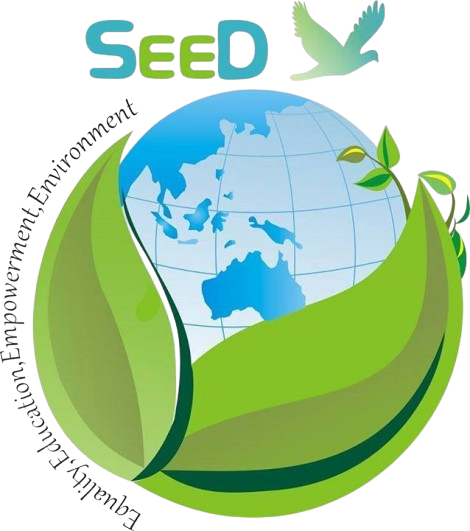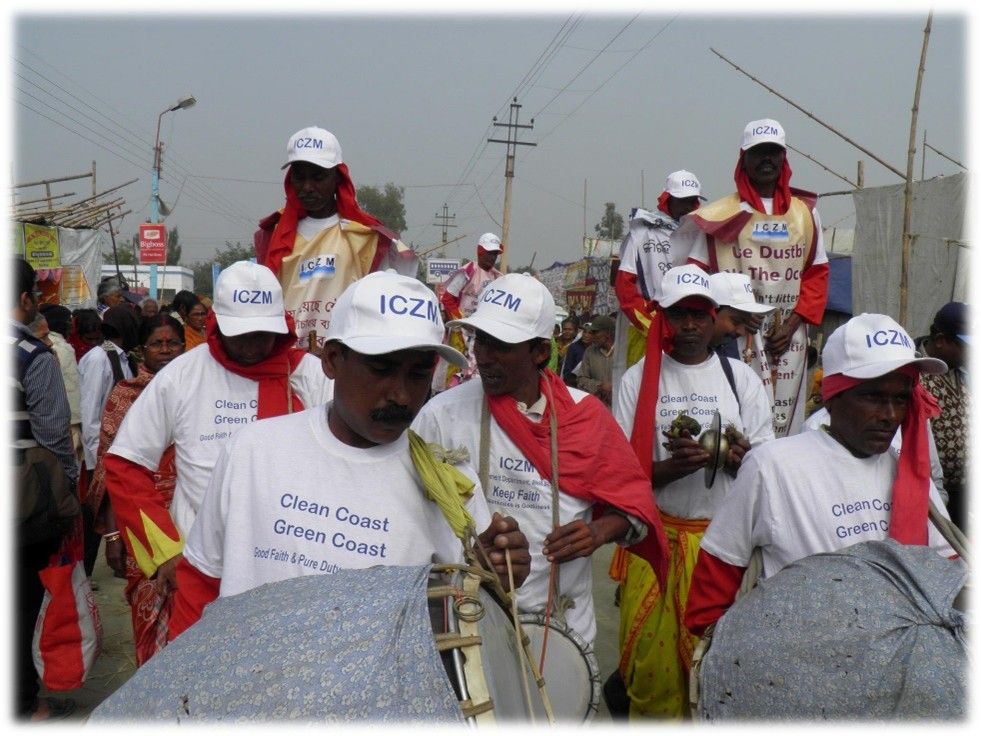






Objective:
The primary objectives of SEED's Coastal Pollution Awareness Campaign under the Integrated Coastal Zone Management (ICZM) project were to create widespread awareness about marine and coastal pollution among vulnerable coastal communities while building local capacity for sustainable coastal resource management. The campaign aimed to educate fishermen, coastal farmers, tourism operators and local communities about the devastating impacts of plastic pollution, untreated waste discharge and industrial contamination on marine ecosystems and livelihoods.
SEED sought to promote community-led solutions for waste management, sustainable fishing practices and coastal conservation while strengthening the connection between environmental protection and economic sustainability. The initiative also aimed to build a network of coastal environmental champions who could advocate for pollution-free coastal environments and support the implementation of ICZM strategies at the grassroots level, ultimately contributing to the World Bank's broader goals of protecting India's coastline from environmental degradation.
Overview:
The campaign addressed the critical challenge of coastal pollution affecting the Sundarbans, Bay of Bengal coastline and associated deltaic regions spanning four districts, areas that serve as lifelines for millions of coastal residents dependent on fishing, agriculture and tourism. Through systematic community engagement, the initiative tackled multiple pollution sources including plastic waste, untreated sewage and agricultural runoff that threaten both marine biodiversity and coastal livelihoods. The campaign strategically combined scientific awareness with practical solutions, ensuring that coastal communities understood not only the environmental consequences of pollution but also gained access to sustainable alternatives and waste management practices. By leveraging SEED's extensive grassroots network and the technical expertise of the ICZM project, the campaign created a powerful movement for coastal environmental protection that connected local environmental challenges with broader climate resilience and sustainable development goals.
Key Activities Undertaken:
1. Community Mobilization and Stakeholder Engagement- SEED conducted extensive outreach across the four coastal districts—North 24 Parganas, South 24 Parganas, East Midnapore and West Midnapore—organizing village-level meetings, fishermen community gatherings and women's self-help group sessions to build awareness about coastal pollution impacts. The organization worked closely with local leaders, panchayat members and CBOs in each district to ensure broad participation and cultural sensitivity in delivering pollution awareness messages. Special focus was placed on engaging youth groups, school students and local environmental volunteers across these coastal regions who could serve as long-term advocates for coastal conservation.
2. Educational Workshops and Training Programs- The campaign featured comprehensive educational workshops that explained the science of coastal pollution, its impact on marine ecosystems and connections to climate change and livelihood security. A landmark one-day workshop was organized on June 5, 2016, coinciding with World Environment Day, focusing on awareness about conserving and nurturing marine biodiversity among coastal women of Sundarban's Jharkhali Island. This workshop, attended by representatives of 45 Self-Help Group (SHG) women and community leaders, was conducted in Training of Trainers (ToT) mode to enable participants to disseminate knowledge across their communities. The session addressed critical issues affecting prawn seed collectors, who play a significant role in destroying fish spawns and aquatic flora and fauna, including mangroves in the world's single largest mangrove forest. SEED developed culturally appropriate training materials in local languages, incorporating visual aids, case studies and hands-on demonstrations to make complex environmental concepts accessible to diverse community groups. Specialized training sessions were conducted for different stakeholder groups, including alternative livelihood options like aquaculture and homestead fish cultivation for women engaged in destructive fishing practices. This initiative was highlighted by CANSA (Climate Action Network, South Asia), read here: https://cansouthasia.net/awareness-for-coastal-women-on-nurturing-and-conservation-of-marine-biodiversity/
3. Pollution Monitoring and Community Science- SEED established community-based coastal pollution monitoring systems, training local volunteers to identify pollution sources, document environmental changes and report pollution incidents to relevant authorities. The campaign included practical sessions on water quality testing and beach cleaning activities that allowed communities to directly observe pollution impacts. This participatory approach helped build local environmental expertise while generating valuable data for ICZM project implementation.
4. Sustainable Waste Management Initiatives- The campaign promoted practical waste management solutions, with special emphasis on educating coastal residents about the harmful impacts of plastic bags and improper waste disposal practices. Community leaders were advised to install dustbins at common places in villages where all community members have access, creating systematic waste collection systems. The initiative included the establishment of community composting systems, plastic waste collection and recycling programs and the promotion of biodegradable alternatives to single-use plastics. SEED worked with local communities to develop waste segregation practices, organize regular clean-up drives, and create incentive systems for pollution reduction. The campaign also promoted kitchen gardens for nutrition and clean environment, connecting waste management with sustainable agriculture practices. Focus was placed on reducing marine plastic pollution through awareness about fishing gear waste and promoting sustainable fishing practices among coastal communities.
5. Policy Advocacy and Institutional Strengthening- SEED facilitated dialogue between coastal communities and government agencies, helping translate grassroots concerns into policy recommendations for the ICZM project. The campaign strengthened local environmental institutions by building capacity among CBOs, supporting the formation of coastal conservation committees and advocating for stronger enforcement of environmental regulations. This included training local leaders on environmental laws, pollution reporting mechanisms and accessing government schemes for environmental protection. The ToT (Training of Trainers) approach enabled group leaders to further disseminate information and knowledge to other members of their groups and across communities, creating a multiplier effect for policy advocacy and institutional strengthening at the grassroots level.
Impact:
Successfully reached 50,000 individuals across West Bengal's coastal districts, creating unprecedented awareness about coastal pollution issues.
Generated significant shifts in waste disposal practices, with communities adopting segregation, composting, and plastic reduction measures.
Established over 100 community-based pollution monitoring groups that continue to track and report environmental changes.
Built capacity among 200 panchayat members and CBOs, creating a network of coastal environmental advocates and conservation leaders.
Mobilized thousands of students and young people as environmental champions, ensuring long-term sustainability of conservation efforts.
Helped 450 fishing communities’ members understand connections between pollution and declining catches, leading to adoption of sustainable practices.
Facilitated establishment of community waste management systems at the village level, significantly reducing plastic and organic waste entering coastal waters.



Subscribe to the SEED Newsletter — and be part of the change!